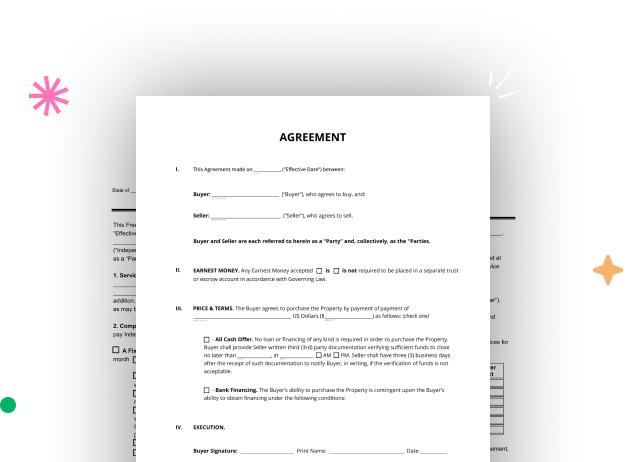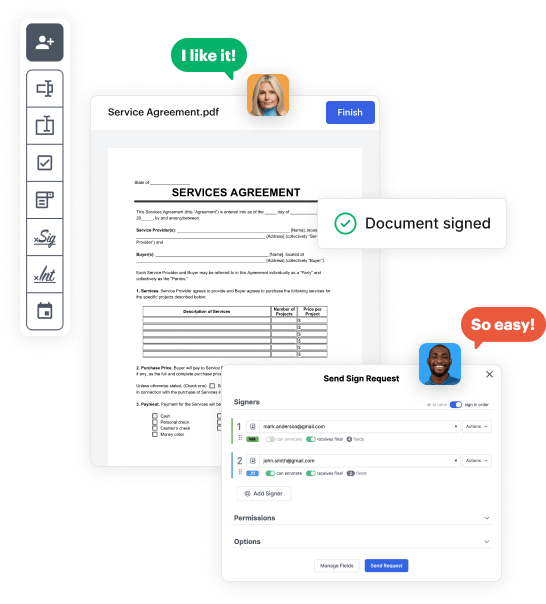

Start by logging into your DocHub account. Explore the advanced DocHub functionality free for 30 days.
Once signed in, head to the DocHub dashboard. This is where you'll create your forms and manage your document workflow.
Click on New Document and choose Create Blank Document to be taken to the form builder.
Use the DocHub tools to insert and configure form fields like text areas, signature boxes, images, and others to your form.
Add needed text, such as questions or instructions, using the text field to guide the users in your document.
Adjust the properties of each field, such as making them compulsory or formatting them according to the data you expect to collect. Designate recipients if applicable.
After you’ve managed to design the Fixed Fee Construction Contract, make a final review of your form. Then, save the form within DocHub, transfer it to your chosen location, or share it via a link or email.